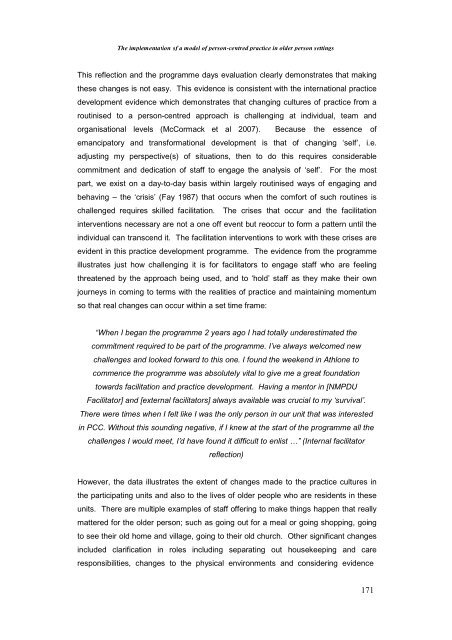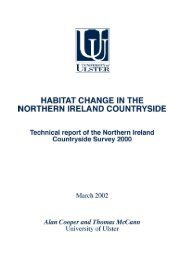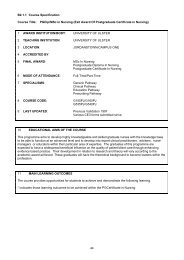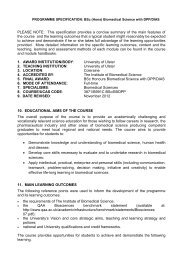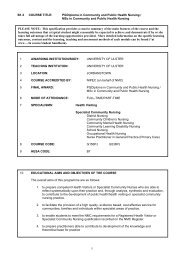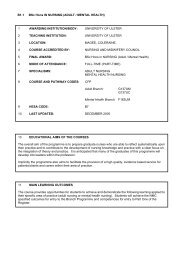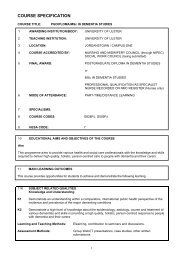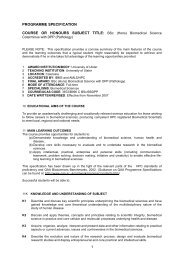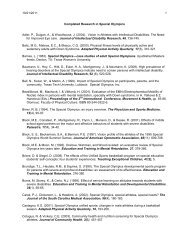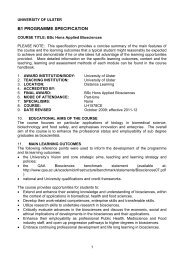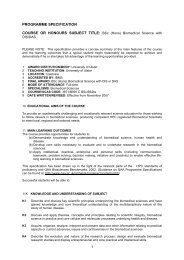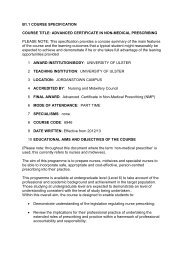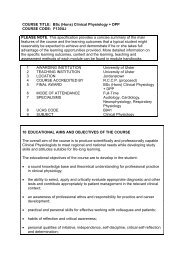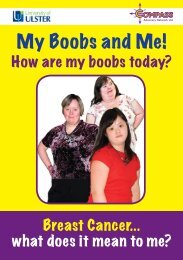The Implementation of a Model of Person-Centred Practice In Older ...
The Implementation of a Model of Person-Centred Practice In Older ...
The Implementation of a Model of Person-Centred Practice In Older ...
You also want an ePaper? Increase the reach of your titles
YUMPU automatically turns print PDFs into web optimized ePapers that Google loves.
<strong>The</strong> implementation <strong>of</strong> a model <strong>of</strong> person-centred practice in older person settings<br />
This reflection and the programme days evaluation clearly demonstrates that making<br />
these changes is not easy. This evidence is consistent with the international practice<br />
development evidence which demonstrates that changing cultures <strong>of</strong> practice from a<br />
routinised to a person-centred approach is challenging at individual, team and<br />
organisational levels (McCormack et al 2007). Because the essence <strong>of</strong><br />
emancipatory and transformational development is that <strong>of</strong> changing ‘self’, i.e.<br />
adjusting my perspective(s) <strong>of</strong> situations, then to do this requires considerable<br />
commitment and dedication <strong>of</strong> staff to engage the analysis <strong>of</strong> ‘self’. For the most<br />
part, we exist on a day-to-day basis within largely routinised ways <strong>of</strong> engaging and<br />
behaving – the ‘crisis’ (Fay 1987) that occurs when the comfort <strong>of</strong> such routines is<br />
challenged requires skilled facilitation. <strong>The</strong> crises that occur and the facilitation<br />
interventions necessary are not a one <strong>of</strong>f event but reoccur to form a pattern until the<br />
individual can transcend it. <strong>The</strong> facilitation interventions to work with these crises are<br />
evident in this practice development programme. <strong>The</strong> evidence from the programme<br />
illustrates just how challenging it is for facilitators to engage staff who are feeling<br />
threatened by the approach being used, and to ‘hold’ staff as they make their own<br />
journeys in coming to terms with the realities <strong>of</strong> practice and maintaining momentum<br />
so that real changes can occur within a set time frame:<br />
“When I began the programme 2 years ago I had totally underestimated the<br />
commitment required to be part <strong>of</strong> the programme. I’ve always welcomed new<br />
challenges and looked forward to this one. I found the weekend in Athlone to<br />
commence the programme was absolutely vital to give me a great foundation<br />
towards facilitation and practice development. Having a mentor in [NMPDU<br />
Facilitator] and [external facilitators] always available was crucial to my ‘survival’.<br />
<strong>The</strong>re were times when I felt like I was the only person in our unit that was interested<br />
in PCC. Without this sounding negative, if I knew at the start <strong>of</strong> the programme all the<br />
challenges I would meet, I’d have found it difficult to enlist …” (<strong>In</strong>ternal facilitator<br />
reflection)<br />
However, the data illustrates the extent <strong>of</strong> changes made to the practice cultures in<br />
the participating units and also to the lives <strong>of</strong> older people who are residents in these<br />
units. <strong>The</strong>re are multiple examples <strong>of</strong> staff <strong>of</strong>fering to make things happen that really<br />
mattered for the older person; such as going out for a meal or going shopping, going<br />
to see their old home and village, going to their old church. Other significant changes<br />
included clarification in roles including separating out housekeeping and care<br />
responsibilities, changes to the physical environments and considering evidence<br />
171


